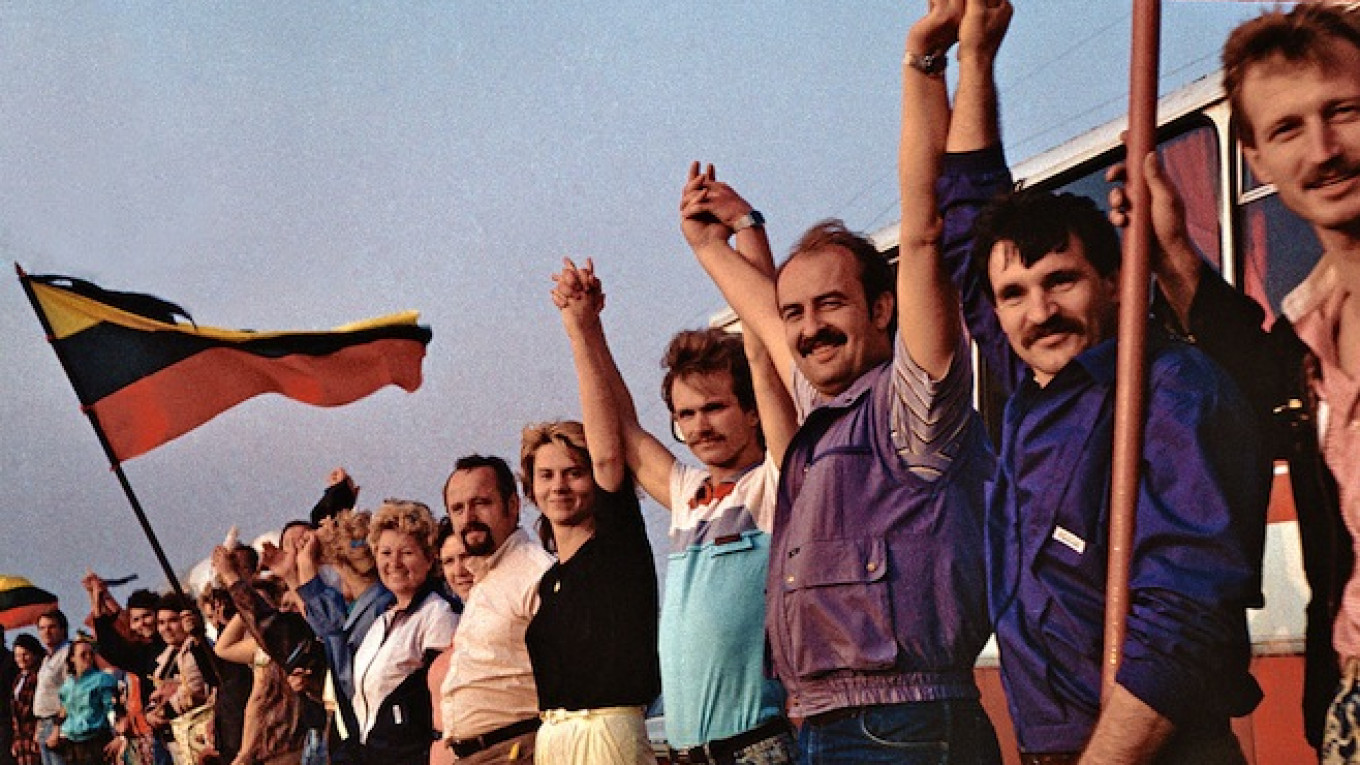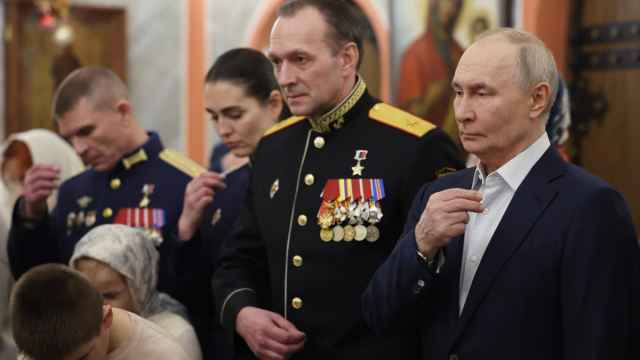The three Baltic states have denounced as absurd reported plans by the Russian Prosecutor General's Office to look into whether their independence from the Soviet Union was legitimate.
Estonia's Foreign Minister Keit Pentus-Rosimannus said it “baffles the mind why the Russian Prosecutor General's Office wastes its time and resources on such a legally absurd question,” Interfax reported Tuesday.
Lithuania's Foreign Minister Linas Linkevicius described the reported investigation plans as an “absurd provocation,” the BBC reported. A spokesperson for Latvia's Foreign Ministry also called the alleged plans absurd, Interfax reported.
The flurry of responses from the Baltic nations — which were annexed by the Soviet Union during World War II and regained independence shortly before the 1991 collapse of the U.S.S.R. — followed an Interfax report earlier in the day, citing an unidentified official as saying that the prosecutor's office had begun an inquiry into whether the restoration of independence was legitimate.
Prosecutors had doubts whether a Soviet ruling council, the so-called State Soviet, which granted independence to the Baltic states, was a legitimate body and had the power to make the ruling, the official was quoted as saying.
The State Soviet was an interim assembly formed in September 1991, and comprised the Soviet president and the leaders of 10 of the country's republics. But the Soviet Constitution allowed no provisions for the creation of such a body, according to Rossiiskaya Gazeta, an official government daily.
“Legally, the decision on acknowledging the independence of the Baltic states was defective due to the fact that it was made by an unconstitutional body,” the unidentified official was quoted by Interfax as saying.
Kremlin spokesman Dmitry Peskov said Wednesday that the move had not come from the Kremlin.
"We were not familiar with this initiative in the Kremlin, and I am struggling to understand the essence of it," he told reporters.
The reported investigation into the Baltic nations' independence comes at a time when the three countries have been building up their defenses and appealing for support to fellow NATO and European Union members amid fears that Moscow may be planning to reclaim control over their territories, after annexing Crimea from Ukraine last year.
The Russian Prosecutor General's Office recently ruled that Crimea's period as part of Ukraine was not legitimate.
The Black Sea peninsula was part of Russia until Soviet leader Nikita Khrushchev handed it over to the then-Soviet republic of Ukraine in 1954, in what at that time seemed like a largely symbolic gesture.
In response to a query from lawmaker and leader of the A Just Russia party Sergei Mironov, prosecutors ruled that the Soviet Constitution did not allow for transferring autonomous regions such as Crimea between Soviet republics, making Khrushchev's order illegitimate, according to a letter from the Prosecutor General's Office the lawmaker published on his website.
The investigation into the Baltic nations' independence, which was also prompted by a request from Russian lawmakers, will likely produce an assessment that would be “analogous to the inquiry into Crimea,” an unidentified official was quoted by Interfax as saying.
The European Union's top envoy to Russia and former Lithuanian foreign minister, Vygaudas Usackas, denounced the reported investigation plans as “ridiculous,” Interfax reported Tuesday.
The Baltic nations' independence is “confirmed by facts on the ground, since we are members of the United Nations, EU and NATO,” Usackas was quoted as saying, adding that the investigation “leads nowhere.”
Contact the author at [email protected]
A Message from The Moscow Times:
Dear readers,
We are facing unprecedented challenges. Russia's Prosecutor General's Office has designated The Moscow Times as an "undesirable" organization, criminalizing our work and putting our staff at risk of prosecution. This follows our earlier unjust labeling as a "foreign agent."
These actions are direct attempts to silence independent journalism in Russia. The authorities claim our work "discredits the decisions of the Russian leadership." We see things differently: we strive to provide accurate, unbiased reporting on Russia.
We, the journalists of The Moscow Times, refuse to be silenced. But to continue our work, we need your help.
Your support, no matter how small, makes a world of difference. If you can, please support us monthly starting from just $2. It's quick to set up, and every contribution makes a significant impact.
By supporting The Moscow Times, you're defending open, independent journalism in the face of repression. Thank you for standing with us.
Remind me later.






